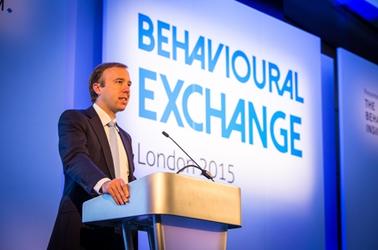Kahneman turns attention to ‘noise’ in organisations
Thaler’s interview with Kahneman took the audience through his latest work as well as his thoughts and opinions on a number of issues affecting behavioural economists currently.
Q: What makes a good academic collaboration?
“A lot of luck; you’ve got to like the people you collaborate with and they’ve got to like you. It is a slow way to work and it can be frustrating but if you enjoy social interaction it’s wonderful. If you get the magic two are superior to either one alone.”
Q: You’re now doing private sector consulting work in noise reduction, tell us about that.
“In many organisations lots of people are doing similar jobs e.g. approving loans, picking stocks. The noise is when two people are making the same decisions on behalf of organisations and if they don’t make the same decision that’s noise.
“When you show the same information twice, people are likely to give two different answers. My sense is this problem is completely ignored in organisations. So if two people are facing the same problem what’s the average difference – 5 to 10%? In one organisation we could measure the average difference between two individuals was about 40%. It was a complete surprise to the organisation. Very rarely do two people independently make the same decision so we have noise. And noise is very costly and it’s a problem that hasn’t been recognised. We have bias recognition but it’s easier to control noise than bias.”
Q: If noise is bad but diversity of opinion is good, how do you differentiate?
“Diversity can help in many problems but noise is silent; people don’t know it exists so they don’t correct for it.
Q: Psychologists are trying to disabuse idea of doing interviews with little success. How do you make interviews less noisy?
“By breaking up problems into elements. Take various aspects and deal sequentially and score individually. So you add structure.”
Q: What have you learnt in terms of dealing with large organisations?
“It’s quite chancy whether you have influence, it can be a chance event. Government might be easier. Dealing with things that don’t offend anyone or cause people to lose status or power will help a lot.”
Q: So when designing policy do you need to think who the losers will be?
“I believe in loss-aversion. When introducing change in most situations, change isn’t neutral – there are potential losers and winners, and potential losers fight a lot harder than potential winners. So anyone looking to bring in change should think who are the losers and what will they do to you? You figure out what is going to hurt. What is preventing them from doing what you want them to do? Then you can reduce the resistance and minimise the hurt.”
Q: How should young scholars choose topics of research?
“Don’t study anything that’s not fun for you to study. Is it likely to be interesting? And know how long to persevere if it’s not going well – the answer is not too long!”
Q: What ends up being called applied psychology has not been held in high esteem?
“It’s a geographic problem. Applied psychology has a different standing in the UK and the US. In the UK it’s always been intellectually respectable – much more than in the US. In the US the word ‘applied’ had an inferior connotation. It’s not an accident that BIT grew up in London.”
Q: What is the next thing that behavioural economics should do?
“A lot of decision-making going on in firms and government and much of it is very poor quality. It’s evolved, it’s not been designed. The process for better decisions is a very large field. Seeing it as a factory that produces decisions and then asking how can we improve production quality.”

We hope you enjoyed this article.
Research Live is published by MRS.
The Market Research Society (MRS) exists to promote and protect the research sector, showcasing how research delivers impact for businesses and government.
Members of MRS enjoy many benefits including tailoured policy guidance, discounts on training and conferences, and access to member-only content.
For example, there's an archive of winning case studies from over a decade of MRS Awards.
Find out more about the benefits of joining MRS here.













1 Comment
Anon
10 years ago
Good article. Small note: Kahneman is a psychologist. Not economist, which is why it was so groundbreaking that he won the Nobel in economics.
Like Reply Report